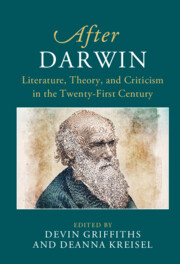Book contents
- After Darwin
- After Series
- After Darwin
- Copyright page
- Contents
- Figures
- Contributors
- Chapter 1 Introduction
- Part I Environments after Darwin
- Part II Differences after Darwin
- Chapter 6 Disability after Darwin
- Chapter 7 Race after Darwin
- Chapter 8 Darwin under Domestication
- Chapter 9 Feminism at War
- Chapter 10 The Survival of the Unfit
- Part III Humanism after Darwin
- References
- Index
Chapter 8 - Darwin under Domestication
from Part II - Differences after Darwin
Published online by Cambridge University Press: 01 December 2022
- After Darwin
- After Series
- After Darwin
- Copyright page
- Contents
- Figures
- Contributors
- Chapter 1 Introduction
- Part I Environments after Darwin
- Part II Differences after Darwin
- Chapter 6 Disability after Darwin
- Chapter 7 Race after Darwin
- Chapter 8 Darwin under Domestication
- Chapter 9 Feminism at War
- Chapter 10 The Survival of the Unfit
- Part III Humanism after Darwin
- References
- Index
Summary
Darwin’s theory of sexual selection has presented queer and trans theorists with a number of stumbling blocks, in that it centers heterosexual reproduction orchestrated between aggressive males and coy females. Some critics have suggested rectifying this problem by imagining sexual selection only with the pursuit of pleasure and aesthetics. But because it severs sexual selection from the “economy of nature,” this split is not able to offer a robust theory of how sexual object choices come into being or circulate. This chapter suggests that Darwin’s thinking about domestication may prove more useful for queer theory because it encompasses criteria pertinent to both sexual and natural selection and entails theorizing how it is that aesthetic criteria matter within the economy of a world in which an organism finds itself.
- Type
- Chapter
- Information
- After DarwinLiterature, Theory, and Criticism in the Twenty-First Century, pp. 95 - 107Publisher: Cambridge University PressPrint publication year: 2022

